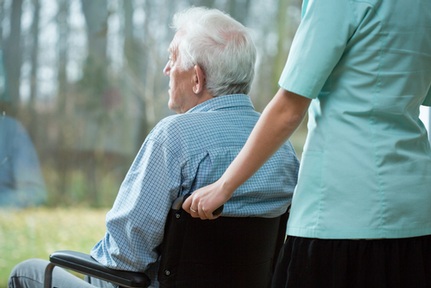Care homes get 40% nursing care rise from Department of Health
The NHS contribution towards the cost of a registered nurse in a nursing home has risen by 40 per cent to £156.25 per person per week.

The Department of Health announced the 2016/17 NHS-Funded Nursing Care (FNC) rate rise (up from £112) as an interim rate, backdated to 1 April.
As well as this standard rate for eligible care home residents who require support from a registered nurse, the higher rate (relevant for people already on the higher rate in 2007), will rise to £215.04 per week from £154.14.
However, the Department of Health said the new rate will be paid on an interim basis while further work is done to review an element of the rate for agency nursing staff. The Department warned this ‘could lead to a reduction to the rate from 1 January 2017’. It also plans to consult on the introduction of regional variation from April 2017.
The rise follows an independent review of the rate carried out by consultants Mazars LLP, who surveyed nursing homes. Before David Cameron’s Government left office, it accepted the consultant's recommendation that clinical commissioning groups start paying the new rate.
Failing to reflect the true cost of nursing care?
The new rate has been described by the Registered Nursing Home Association (RNHA) as failing to reflect the true cost of time spent by registered nurses giving nursing care including time spent supervising other staff to meet those needs.
Frank Ursell, chief executive of the RNHA, whose members own over 1,000 nursing homes, said: “We welcome the fact that it’s more than the tenner increase that we were expecting, but it’s not enough. “The method the consultants used to determine the rate was based on time; how much time does a nurse spent doing their work. We offer 24 hour nursing care. For example, if it’s 22 and a half hours across a day, you’ve still got to employ them for that whole day, you can’t send them home.
'£200 minimum a night in hospital'
“If these people were in a hospital, it would cost the NHS a minimum of £200 a night.”
Mr Ursell expressed shock at the prospect of the new temporary rate falling next January.
He highlighted the concern amongst some homes that councils (although it wouldn’t cost them a penny more) may decide to cancel contracts and replace them with new contracts with lower care fees to reflect the rate rise nursing homes will get from the NHS.
‘Summer to bring nursing home closures’
The chief executive, who runs a 25 bed nursing home in Worcestershire said: “My local authority increased its care home fees by 2.9 per cent. Nursing homes need a minimum increase of five per cent from councils just to stay as they are. I’m expecting a lot of nursing homes will close this summer.”
Martin Green, chief executive of Care England, independent care providers body, said: “Care England has worked tirelessly to ensure the rate of FNC was properly reviewed after so many years of nil or very low increases.
“The care nurses give in nursing homes is a vital part of our whole care system and moving to a more realistic means of funding this care is an important step in the right direction. We must now also determine how the FNC should be reviewed annually going forward.”
As reported by carehome.co.uk England’s nursing homes had been waiting since 1 April to find out what the 2016/17 NHS-Funded Nursing Care rate would be.
On 7 July, the Department of Health told carehome.co.uk the 2016/17 rate would be published by the end of July. It blamed delays on the purdah period enforced in the run up to the EU referendum, which prevented announcements that could influence people’s votes.
Latest News Analysis
 04-Sep-19
Extra £1.5 billion announced for social care in Chancellor's Spending Review
04-Sep-19
Extra £1.5 billion announced for social care in Chancellor's Spending Review
 02-Jul-19
Department of Health forced to rethink care homes' nursing rates after legal challenge
02-Jul-19
Department of Health forced to rethink care homes' nursing rates after legal challenge
 18-Jun-19
Overnight care workers forced to sleep in offices and told 'bring your own bedding'
18-Jun-19
Overnight care workers forced to sleep in offices and told 'bring your own bedding'
 14-Jun-19
Back in the closet: Third of care home staff have had no LGBT+ awareness training
14-Jun-19
Back in the closet: Third of care home staff have had no LGBT+ awareness training
 11-Jun-19
PM candidates on social care: Rory Stewart calls fixing care an 'unfinished revolution'
11-Jun-19
PM candidates on social care: Rory Stewart calls fixing care an 'unfinished revolution'